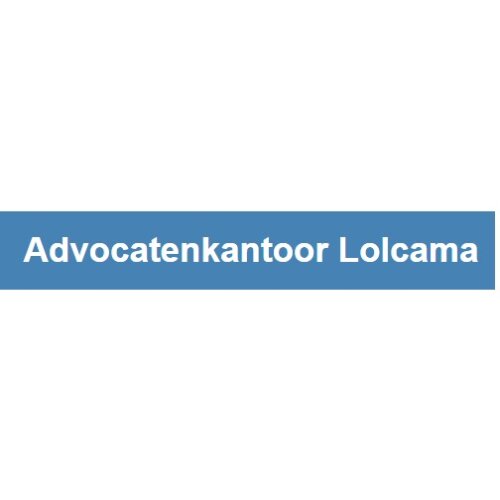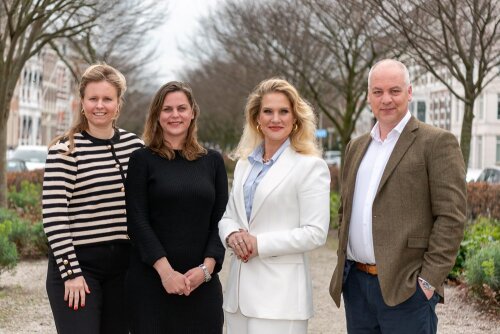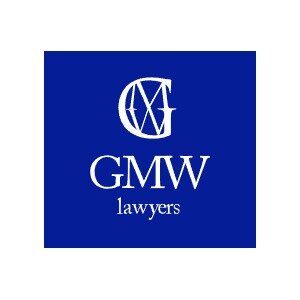Best Conveyancing Lawyers in The Hague
Share your needs with us, get contacted by law firms.
Free. Takes 2 min.
Free Guide to Hiring a Real Estate Lawyer
List of the best lawyers in The Hague, Netherlands
About Conveyancing Law in The Hague, Netherlands
Conveyancing in The Hague refers to the legal process of transferring ownership of real estate or property from one person to another. This process is rooted in Dutch civil law and is highly regulated to ensure both buyers and sellers are protected. The Hague, as a part of the Netherlands, follows specific national and local procedures for property transactions. The process typically involves notaries, a mandatory part of the Dutch legal system when dealing with property sales and purchases. Conveyancing ensures that the legal title is correctly transferred and that the interests of all parties are safeguarded throughout the sale or purchase of property.
Why You May Need a Lawyer
There are several situations in which you may require the services of a lawyer experienced in conveyancing in The Hague. These include:
- When buying or selling a home, apartment, or other types of real estate and you want to ensure the process is legally sound.
- If you are a non-resident or foreigner purchasing property for the first time and are unfamiliar with Dutch law and language.
- When dealing with complex ownership situations, such as shared ownership (Vereniging van Eigenaren, or VvE) or inheritance cases.
- To review or draft sales contracts, preliminary agreements, and notarial deeds.
- If you encounter disputes relating to boundaries, easements, or missing permits.
- Managing mortgage registrations or conducting due diligence against hidden burdens on the property.
- To ensure all taxes and local government obligations (such as transfer tax) are properly handled.
Local Laws Overview
In The Hague, as in the rest of the Netherlands, property law is governed by the Dutch Civil Code (Burgerlijk Wetboek). Specific aspects relevant to conveyancing include:
- Notarial Involvement: All property transfers must be finalized by a Dutch notary. Notaries draft the official deed of transfer (akte van levering) and register the new ownership in the Land Registry (Kadaster).
- Preliminary Purchase Agreement: Once terms are agreed, buyers and sellers usually sign a preliminary agreement (koopovereenkomst). This agreement often includes a statutory three-day cooling-off period for the buyer.
- Due Diligence: Both parties should perform thorough due diligence, such as checking municipal zoning plans, unpaid bills, or existing rights on the property.
- Transfer Tax (overdrachtsbelasting): Buyers are obliged to pay a property transfer tax, which is usually 2 percent for residential properties and higher for commercial real estate.
- Energy Certificates and Compliance: Sellers must provide an Energy Performance Certificate (EPC) and meet all local compliance obligations.
- VvE Regulation: For apartments, the homeowner’s association is involved, and their rules and financial situation must be reviewed.
Frequently Asked Questions
What is the role of a notary in Dutch property transactions?
A notary in the Netherlands is a public official and legal expert who oversees the transfer of property ownership. The notary drafts the deed of transfer, conducts checks against legal claims on the property, and ensures the documents are registered with the Land Registry.
Is it possible to buy or sell property in The Hague without a lawyer?
While not legally required, having a lawyer can safeguard your interests, especially for contract review, negotiation, and due diligence. Notaries handle the formal legal aspects, but a lawyer can offer you independent advice.
How long does the conveyancing process take in The Hague?
The process can take anywhere from a few weeks to several months, depending on various factors such as financing, due diligence, and any complications that arise during the transaction.
Can foreigners buy property in The Hague?
Yes, foreigners are generally allowed to buy property in The Hague. There are no specific restrictions, but it is advisable for non-Dutch speakers to seek legal or linguistic assistance.
What taxes do I need to pay when buying property?
The main tax is the transfer tax, usually 2 percent of the purchase price for residential properties. Other costs include notary fees, land registry fees, and possibly lawyer’s fees.
What should I check before signing a purchase agreement?
You should check property boundaries, potential debts or liens, planning/zoning restrictions, the status of the homeowner’s association (if applicable), compliance certificates, and environmental risks.
Is the preliminary purchase agreement binding?
Yes, after signing and following the three-day cooling-off period for the buyer, the preliminary agreement becomes binding, and breaking it may result in penalties.
What happens on the completion day?
On completion day, the notary ensures all conditions are met, receives the purchase funds, and officially registers the change of ownership in the Land Registry. The buyer then receives the keys to the property.
What is the Kadaster?
The Kadaster is the Dutch Land Registry, responsible for maintaining records on property ownership, boundaries, and rights such as mortgages or easements.
What if there are disputes after the purchase?
If disputes arise after completion, such as hidden defects or undisclosed liabilities, parties should seek legal advice. Dutch law offers protections against certain hidden defects if they were not disclosed by the seller.
Additional Resources
Here are several organizations and governmental bodies that can provide further assistance or information on conveyancing in The Hague:
- Kadaster: For property records and land information.
- Royal Notarial Association (Koninklijke Notariële Beroepsorganisatie - KNB): For locating registered notaries and information on their services.
- Law Society of the Netherlands (Nederlandse Orde van Advocaten): For finding qualified conveyancing lawyers.
- Municipality of The Hague (Gemeente Den Haag): Local procedures, zoning plans, and compliance checks.
- Dutch Homeowner’s Association (Vereniging Eigen Huis): Support and information for property buyers and owners.
Next Steps
If you need legal assistance with conveyancing in The Hague, consider taking the following actions:
- Gather all relevant documents related to the property, such as preliminary agreements, property deeds, and identification.
- Consult with a notary or conveyancing lawyer early in the process, especially before signing any agreements.
- Research the background of the property, including regulatory zoning, possible debts, and the financial status of any homeowner’s association.
- Request clear explanations of all fees, taxes, and obligations involved in the transaction.
- If you are not fluent in Dutch, seek professional translation or legal services that cater to international clients.
- Use the additional resources listed above for further guidance and information.
- Act promptly, as property transactions may involve tight deadlines or competing buyers.
By following these steps and seeking professional legal advice when necessary, you can ensure a smoother and legally secure conveyancing process in The Hague, Netherlands.
Lawzana helps you find the best lawyers and law firms in The Hague through a curated and pre-screened list of qualified legal professionals. Our platform offers rankings and detailed profiles of attorneys and law firms, allowing you to compare based on practice areas, including Conveyancing, experience, and client feedback.
Each profile includes a description of the firm's areas of practice, client reviews, team members and partners, year of establishment, spoken languages, office locations, contact information, social media presence, and any published articles or resources. Most firms on our platform speak English and are experienced in both local and international legal matters.
Get a quote from top-rated law firms in The Hague, Netherlands — quickly, securely, and without unnecessary hassle.
Disclaimer:
The information provided on this page is for general informational purposes only and does not constitute legal advice. While we strive to ensure the accuracy and relevance of the content, legal information may change over time, and interpretations of the law can vary. You should always consult with a qualified legal professional for advice specific to your situation.
We disclaim all liability for actions taken or not taken based on the content of this page. If you believe any information is incorrect or outdated, please contact us, and we will review and update it where appropriate.











